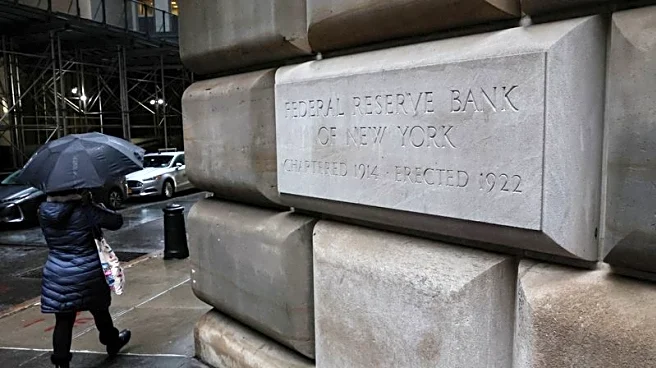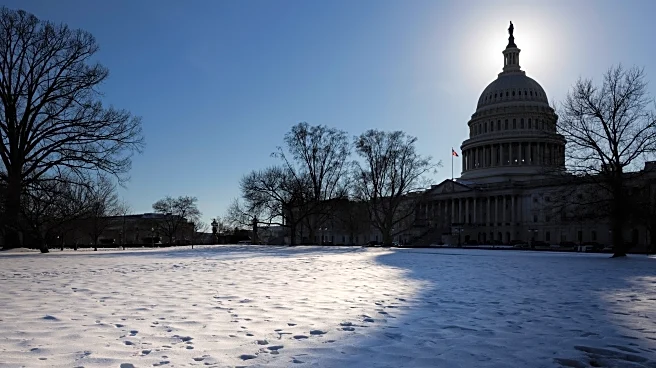What's Happening?
Several Israeli hostages recently freed from Gaza under a US-brokered ceasefire plan are scheduled to meet President Donald Trump at the White House. Among them is Bar Kupershtein, who spent over two years
in captivity under Hamas. Kupershtein endured significant hardships, including beatings and starvation, but maintained hope for his eventual release. His meeting with President Trump is part of a broader diplomatic effort following the ceasefire agreement. Kupershtein has expressed deep gratitude towards President Trump, referring to him as an 'emissary of God' for his role in facilitating their release. This meeting underscores the ongoing diplomatic engagements between the US and Israel, particularly in the context of regional security and humanitarian efforts.
Why It's Important?
The meeting between President Trump and the former hostages highlights the US's influential role in Middle Eastern diplomacy, particularly in conflict resolution and humanitarian efforts. The successful negotiation of the ceasefire and subsequent release of hostages demonstrates the US's capacity to broker peace and facilitate humanitarian outcomes in complex geopolitical situations. This event may strengthen US-Israel relations, showcasing the US as a reliable ally in times of crisis. Additionally, it could influence public perception of President Trump's foreign policy effectiveness, potentially impacting his political standing domestically and internationally.
What's Next?
Following the meeting, there may be further diplomatic discussions aimed at ensuring the stability of the ceasefire and addressing broader regional security concerns. The US may continue to engage with Israeli and Palestinian leaders to promote lasting peace and prevent future hostilities. Additionally, the meeting could lead to increased humanitarian aid and support for affected communities in Gaza. Political analysts will likely monitor the outcomes of this engagement to assess its impact on US foreign policy and regional dynamics.
Beyond the Headlines
The release of hostages and subsequent diplomatic engagements may have deeper implications for US foreign policy in the Middle East. It could signal a shift towards more active involvement in regional peace processes, potentially influencing future negotiations and alliances. The humanitarian aspect of the ceasefire agreement may also prompt discussions on international human rights and the role of global powers in conflict resolution. Furthermore, the personal stories of the hostages, like Kupershtein's, may bring attention to the human impact of geopolitical conflicts, fostering empathy and support for peace initiatives.












